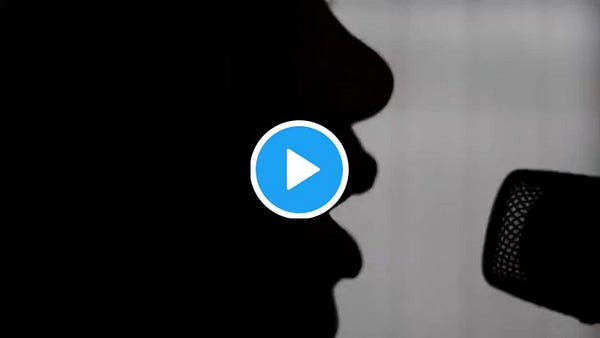Armies of One
Loss Leader #12: "Leaderless doesn't mean no one's leading, it means thousands are."
I do not like to line up. I am not a joiner. I prefer to operate behind the scenes, rather than on the frontlines with a bullhorn.
But I’ve thought a lot about what is required of me these days, what is the line that is crossed for me to report directly to the ramparts. What will I fight for?
What would make me take to the street? What would I stand in line all day to protect?
And, more importantly, what leads me to sometimes not do those things and what is that inaction enabling?
I think the answer is the idea of futility. There is a feeling that we are individually powerless, that the forces are too great for us to oppose, individually. We feel as though we cannot and do not make a difference.
But today — as we watch Americans vote in an election that will determine the course of people’s lives, of a nation and of democracy — it’s more important than ever to realize that our individual actions are a form of leadership as well, and that each one of us — alone — sets the course of collective history.
I need to remind myself that we are always on the ramparts, and that the things we do individually are constantly driving the force of change, for better or for worse.
Sometimes we find ourselves propelled to action after it’s already too late.
In Poland, women showed up on the streets individually to protest the total destruction of their reproductive rights, and collectively formed one of the biggest protests in modern history.


Sometimes, we see a small, safe avenue to participate. On a NYT chatgroup recently, for example, one participant used some food to spell out the word vote, after the moderator said it wasn’t the place for political topics. After the first photo was posted, more and more were, all of them individually feeding into a collective statement made by complete strangers, miles apart.


But it’s important to realize that we are also participating in collective action when we don’t think we are: through our choices, our actions and inactions, our preferences.
The individual is political, we must be reminded.
Our personal decisions are constantly guiding the arc of history. We act individually but our collective patterns tell a story, not just when we vote or don’t vote but in the things we buy or don’t buy, the stores we frequent, the content we consume, the heroes we lionize, the horrors that we barely glance at.
Together we are always making our interests and our preferences known to those in positions of power, and we all individually guide the hands of our leaders, by demonstrating to them what we think is okay or acceptable.
No one leads (well or badly) without the tacit approval of the masses. Leaders are constantly assessing where the public is at — where each one of us is at — and what we’re okay with.
And so today, and every day, it is our job to lead them well.

Quick Leads
I’m not sure why these are almost always about women. Read into that what you will.
After winning a landslide victory in New Zealand, Prime Minister Jacinda Ardern could have changed the country motto to “Suck it, everybody” and coasted on the laurels of her expert handling of the Covid crisis and the terrorist attack the year before. Instead, even with a majority government, she invited another party to form a “cooperation agreement,” and gave three Green Party members cabinet roles so she could tap their expertise.
Sometimes fake democracy works better than real ones. A Russian woman was entered into a mayoral election against the incumbent as part of an apparently widespread practice of running hopeless candidates to offer the guise of democracy. But then she won.
Sometimes as a leader you need to focus on what’s getting in the way of the people you want to help. LeBron James recently joined others to pay fines so that ex-cons could vote: Greatest re-enfranchisement Of All Time.
I feel like the billable hours for lawyers in the US over the next couple of days are going to be huge. This one is definitely earning hers. Vijaya Gadde is apparently steering Twitter towards more strategic long term thinking related to hate speech and, you know, the problem with letting people scream at each other until actual violence erupts.
And finally, because we all need it today:












